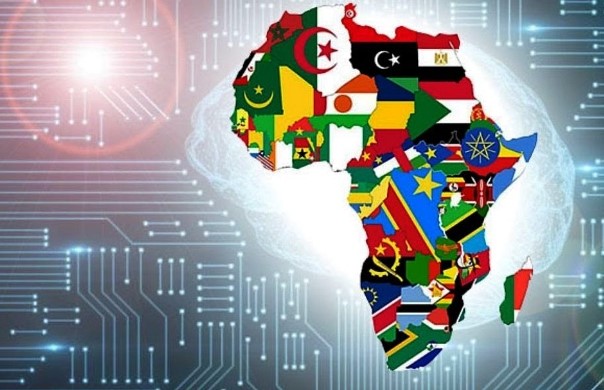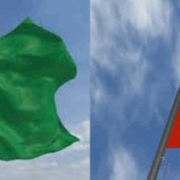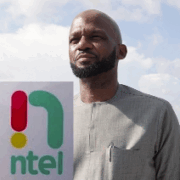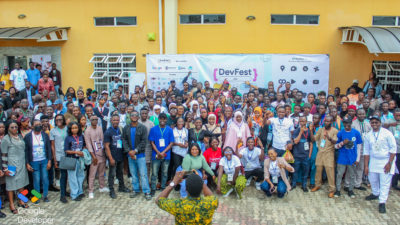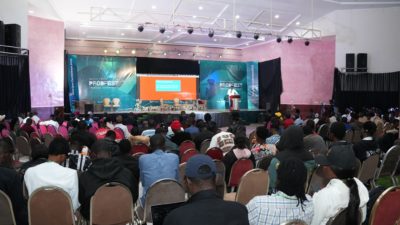By Eric Osiakwan and Yaw Owusu
General Electric, Coca Cola, Colgate-Palmolive and other industry leaders have been around for more than a century and remain competitive in their respective markets. Today, we investigate why such entrepreneurial feat is rare in Africa and why less than one percent of businesses founded on the continent outlive their founding generations.
RELATED: Africa needs integrated digital strategies to make AfCFTA work, says Eric Osiakwan
First, African entrepreneurs seldom start with a long-term vision to build businesses that would last for generations and expand into multiple African countries or become a global leader. Secondly, even when the founders have that vision, they often lack the planning and execution prowess for pan-African domination of a niche market, not to talk about global superiority. Planning and development of a regional multi-generational venture is the bane of African founders but to a lesser extent contemporary African tech founders.
Creating and running formidable African tech ventures
In this essay, instead of the classical predictions for 2025, I am going to lay down my hypothesis on how a tactical combination of these building blocks could make for creating and running formidable African tech ventures that would stay competitive for up to 2125 and beyond – I would not be around then but that is the whole idea. I have a hunch that the timing may be right for building multi-generational multi-national tech ventures in Africa when it comes to the current crop of tech founders who are building the digital economy.
Evidence numero uno, is the paradigm shift from “leaving Africa to explore greener pastures in the west” to “I can build the next Facebook or Google in Africa” – that is visionary. This paradigm shift, which is being manifested by the current generation of African tech founders, is the nucleus of a mega-trend – the move from consumption of technology from the west to creation of technology, e.g. solar energy, crowd sourcing and mobile money, that solves critical problems here and can rival or in some cases be superior to their western competitors.
Evidence number two is the development of technical skills and business knowhow by this generation of millennials either through formal or informal education with no background or generational history of techpreneurship. Majority of African tech founders today are new to their line of businesses and in some cases, there is no family history of entrepreneurship, technical knowhow or business experience. It is mind-boggling to witness a generation of young lads who dream big and then wake up from their dream with the zeal, skills and impetus to punch above their weight – all this in one generation – far removed from the previous generation.
The Cellulant Mafia
Some of these audacious young lads have dreams of building multi-national tech ventures that survive and stay productive in the current and future generations – can they, do it? My answer is “probably” because it always starts with a vision and the willingness to make it happen.
One such example is Kenyan founder, Ken Njoroge and Bolaji Akinboro, his Nigerian partner co-founded Cellulant in 2002 based on a collective vision and plan that they scribbled on a serviette at a cafe. According to the World Economic Forum “Ken Njoroge, is someone for whom vision remains front and centre of everything the Cellulant does, even 15 years after starting the business.
In fact, he and Bolaji Akinboro, his Nigerian partner and Co-CEO, decided on a goal before they were even a hundred percent certain of the type of business through which it would be accomplished.”[1]
Ken and Bolaji set out to build a pan-African business partly because one is West African, whilst the other is from the Eastern part of the continent. Furthermore, they planned to build a business which would last beyond their time on this earth.
Today, Cellulant is in 35 African countries as a leading fintech after 22 years of operations, having processed about $40B worth of digital payments. Both Ken and Bolaji have exited the business to start new ventures together with their founding team[2] and there is a second generation of leaders and team currently running the business.[3] Cellulant has groomed a generation of tech founders called the Cellulant Mafia. Caleb Maru of Tech Safari chronicled the Cellulant story.[4]

Tailwinds across Africa could aid these tech founders
Finally, what are the tailwinds blowing across the continent that could aid these tech founders? The first is the common market in Africa created by the African Continental Free Trade Area (AfCFTA), similar to the European Union and set to progressively eliminate tariffs on intra-African trade. AfCFTA is the largest free-trade area by number of member states, second only to the World Trade Organization. AfCFTA is also the largest in population and geographic size, covering 1.5 billion people estimated at $3T according to McKinsey.
Out of this common market is a growing middle class that consumes technology. The most avid consumers of mobile web solutions are the emerging middle class which, according to the African Development Bank Group (“AfDB”) in 2011, was 313 million people accounting for 34% of the total population.[5] This middle class spends on average between $2 and $20 a day. By 2060, the AfDB predicts that the number of middle-class Africans will grow to 1.1 billion accounting for 42% of the population. This means Africans living below the poverty line will be at 33%.
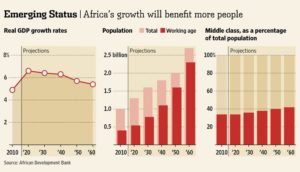
A 2023 joint report by AfCFTA and the World Economic Forum pointed out that: AfCFTA will accelerate intra-African trade and develop regional and local value chains, creating new business dynamics that offer investors access to a population of 1.7 billion people with combined business and consumer spending reaching $6.7 billion by 2030.
With the projected phenomenal growth in intra-African trade and consumer spending, AfCFTA lays a strong foundation and an enabling business environment for African tech entrepreneurs seeking to build multi-generational multi-national African corporations.
[1] https://www.weforum.org/people/kennedy-njoroge/
[2] https://techsafari.beehiiv.com/p/cellulant
[3] https://www.cellulant.io/our-team/
[4] https://techsafari.beehiiv.com/p/cellulant
[5] African Development Bank Group (“AfDB”) in 2011 was 313 million people accounting for 34% of the total population

